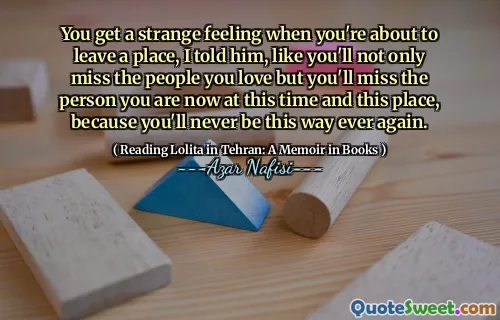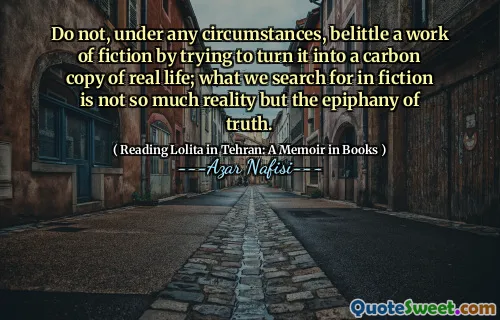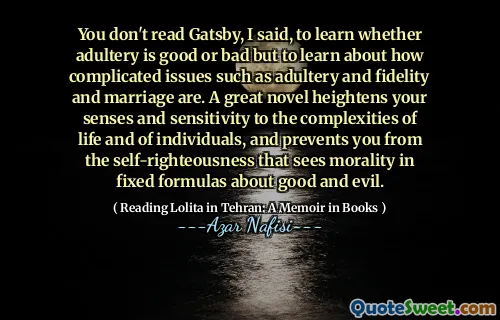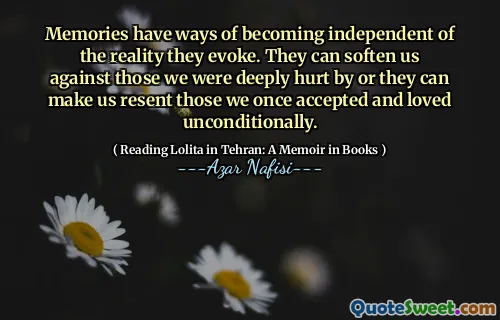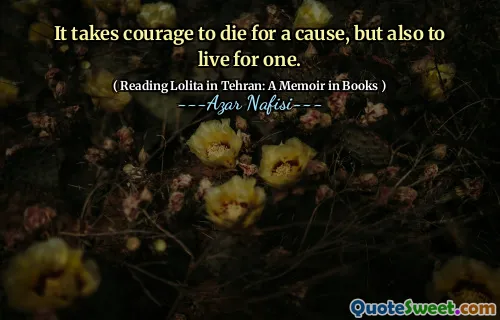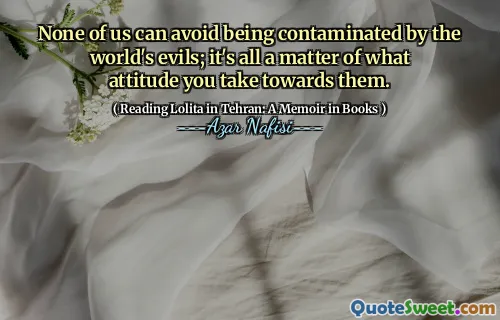
Every great work of art, I would declare pompously, is a celebration, an act of insubordination against the betrayals, horrors and infidelities of life.
📖 Azar Nafisi
Azar Nafisi, in her memoir "Reading Lolita in Tehran," reflects on the profound nature of art, suggesting that every significant piece serves as a celebration and a rebellion against life’s myriad challenges and injustices. Through this lens, works of art become forms of resistance, providing solace and strength in the face of betrayal and suffering.
This perspective underscores the transformative power of literature and art. In challenging and oppressive circumstances, such creations allow individuals to assert their humanity and confront the harsh realities they endure, turning personal and collective pain into a platform for expression and hope.
